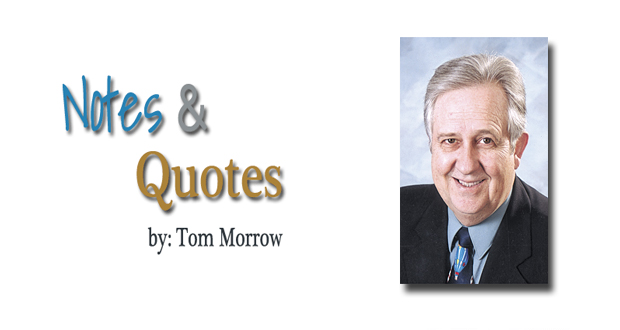By Tom Morrow
Aviation pioneer Brig. Gen. Billy Mitchell correctly predicted what lie ahead in 20th century warfare, but at great personal cost. As early as 1906, Mitchell predicted the strategic implementation of future wars would take place in the air, not on the ground.
William “Billy” Mitchell, born Dec. 29, 1879, was an Army general who today is regarded the father of the United States Air Force.
In March 1912, Mitchell toured battlefields of the Russo-Japanese War and concluded that war with Japan would be a reality.
After World War I, Mitchell began advocating for an increase in air power. One of the problems he had was “the war to end all wars” had just been fought and few really believed in any future conflict.
Recognized as one of the top combat airmen of “The Great War,” Mitchell was probably the best-known American in Europe. He was awarded the Distinguished Service Cross and the Distinguished Service Medal.
After the war, Mitchell began advocating that bombers could sink battleships. While he would prove his theory, it was the beginning of Mitchell’s undoing because few in either the Army or Navy shared his vision.
In February 1921, a bombing demonstration using captured German ships was reluctantly agreed to by the Navy. Mitchell had infuriated the Navy by claiming he could sink ships “under war conditions,” and boasted he could prove it if he were permitted to bomb and sink captured German battleships. The demonstration was a success.
In 1923, Mitchell repeated the bombing tests with the same results on three obsolete American battleships, USS Alabama, USS Virginia and USS New Jersey. As a result, President Harding and Navy officials were angry because the demonstration showed U.S. Naval weakness.
Mitchell’s bombing tests caused budgets to be redrawn for further air development and forced the Navy to look more closely at the possibilities of Naval air power. One of his predictions: There would be a future surprise attack on the Hawaiian Islands by Japan.
But Mitchell was an embarrassment to both military and civilian leaders. Accordingly, in October 1925, he was court-martialed for “insubordination” because he accused Army and Navy leaders of having an “almost treasonable administration of the national defense” by investing in battleships instead of aircraft carriers.
The court martial lasted for seven weeks. The youngest of the 12 judges was Maj. Gen. Douglas MacArthur, who voted for acquittal. He described sitting as a judge on Mitchell’s court-martial as “one of the most distasteful orders I ever received.” However, the majority found him “guilty of all specifications and charges.” The court suspended Mitchell from active duty for five years without pay, which President Coolidge later amended to half-pay.
MacArthur said afterward “a senior officer should not be silenced for being at variance with his superiors in rank and with accepted doctrine.” It was a stance decades later that would prove to be the general’s undoing.
Shortly after the trial, Mitchell resigned and spent the rest of his life writing and preaching air power. He received many honors, albeit most after his death on Feb. 19, 1936. President Franklin D. Roosevelt posthumously commissioned him a Major General. He also is the only individual for whom a military aircraft, the North American B-25 Mitchell bomber, was named. That twin-engine bomber was used on the heroic Jimmy Doolittle surprise raid over Tokyo some six months after the Pearl Harbor attack.
Today, in Air Force circles Mitchell is regarded today as a hero, legend and the father of the U.S. air power.




